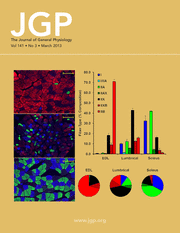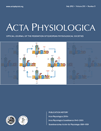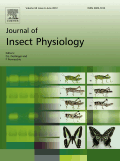
PFLUGERS ARCHIV-EUROPEAN JOURNAL OF PHYSIOLOGY
Scope & Guideline
Bridging Theory and Practice in Physiological Science
Introduction
Aims and Scopes
- Molecular and Cellular Physiology:
The journal focuses on the mechanisms of cellular processes, including ion channel dynamics, signaling pathways, and metabolic regulation, contributing to a deeper understanding of how these processes affect organismal physiology. - Systemic Physiology and Pathophysiology:
PFLUGERS ARCHIV examines physiological functions across systems, studying the integration and regulation of body systems under normal and pathological conditions, such as cardiovascular, renal, and respiratory physiology. - Innovative Methodologies:
The journal encourages the use of cutting-edge techniques in physiology, including optogenetics, computational modeling, and advanced imaging techniques, to explore physiological phenomena. - Translational Research:
There is a strong emphasis on studies that translate basic physiological research into clinical applications, highlighting the relevance of physiological insights for understanding diseases and developing therapeutic strategies. - Neurophysiology and Behavior:
Research exploring the interplay between physiological processes and behavioral outcomes, particularly in areas such as pain, stress responses, and sensory processing, is a core focus of the journal.
Trending and Emerging
- Role of Gut-Brain Axis and Metabolism:
There is a growing interest in the interactions between gut microbiota, metabolic processes, and brain function, underscoring the importance of the gut-brain axis in health and disease. - Hypoxia and Oxygen Sensing Mechanisms:
Research on the physiological responses to hypoxia and the mechanisms of oxygen sensing is increasingly prominent, linking to areas such as cardiovascular health, metabolic disorders, and environmental physiology. - Advancements in Optogenetics and Neural Control:
The application of optogenetic tools to manipulate and study neural circuits is on the rise, providing insights into neuronal activity and its physiological implications in health and disease. - Non-coding RNAs in Physiology and Disease:
Investigations into the roles of non-coding RNAs in regulating physiological processes and their implications in various diseases are gaining traction, reflecting a trend towards molecular-level insights. - Impact of Lifestyle Factors on Physiological Health:
Research exploring how lifestyle factors, such as exercise, diet, and environmental influences, affect physiological functions and their implications for chronic diseases is increasingly represented.
Declining or Waning
- Traditional Pharmacological Studies:
Research centered on classical pharmacological approaches, such as drug mechanisms and effects on isolated tissues, is less frequently published, with a shift towards more integrative and complex physiological studies. - Basic Electrophysiology without Clinical Relevance:
While electrophysiological studies remain important, those lacking clear clinical implications or translational relevance appear to be waning, as the journal shifts towards studies that connect basic science with health outcomes. - Descriptive Studies of Physiological Processes:
There has been a noticeable decrease in purely descriptive studies that do not incorporate mechanistic insights or novel methodologies, reflecting a trend towards hypothesis-driven research. - Studies Lacking Interdisciplinary Approaches:
Research that does not incorporate interdisciplinary methodologies or collaborations, especially those that do not integrate molecular biology with systemic physiology, is less frequently represented.
Similar Journals

Physiology International
Advancing the Frontiers of Physiology and MedicinePhysiology International is a distinguished journal dedicated to the exploration and advancement of knowledge in the fields of physiology, sports medicine, and rehabilitation. Published by AKADEMIAI KIADO ZRT in Hungary, this open-access journal has been a reliable source of scholarly articles since its inception in 2016, providing valuable insights into both complementary and alternative medicine, as well as traditional medical practices. With an impact factor that situates it in Q2 and Q3 quartiles across related disciplines, including Physical Therapy, Sports Therapy and Rehabilitation and Orthopedics and Sports Medicine, it represents a vital resource for professionals and researchers looking to stay abreast of the latest findings and methodologies. The journal is indexed on Scopus, signifying its credibility and relevance in the medical community. As it continues to develop through 2024, Physiology International invites contributions that challenge existing paradigms and foster innovative approaches to health and wellness, making it an essential platform for advancing the conversation in medical physiology and its applications.

JOURNAL OF PHYSIOLOGY AND BIOCHEMISTRY
Connecting Theoretical Insights with Practical ApplicationsJOURNAL OF PHYSIOLOGY AND BIOCHEMISTRY, published by Springer in the Netherlands, serves as a pivotal platform for disseminating high-quality research within the fields of physiology, biochemistry, and related biomedical sciences. With an impressive impact factor reflected in its categorization as Q2 in Biochemistry and Q1 in Medicine (miscellaneous), this journal fosters a vibrant community of scholars dedicated to advancing knowledge and innovation. The journal’s broad scope encompasses a wide range of topics from cellular mechanisms to systemic physiology, making it relevant for both theoretical and applied sciences. Researchers and practitioners are encouraged to utilize the available Open Access options to reach a wider audience. The journal’s continuous contribution to the scientific dialogue since its inception in 1996 positions it as a key resource for professionals and students alike, facilitating the exploration of cutting-edge topics and collaborative research opportunities.

JOURNAL OF GENERAL PHYSIOLOGY
Unraveling the Complexities of Life's ProcessesJOURNAL OF GENERAL PHYSIOLOGY, published by Rockefeller University Press, is a leading peer-reviewed journal that has been at the forefront of physiological research since its inception in 1918. With an ISSN of 0022-1295 and an E-ISSN of 1540-7748, this esteemed journal maintains an impressive Q1 ranking in the field of Physiology, reflecting its high-quality contributions to both the basic and applied aspects of physiology. Regularly cited in the scientific community, it ranks 70th out of 193 in the category of Biochemistry, Genetics, and Molecular Biology, showcasing its significant impact within academic circles. The journal publishes original research, reviews, and commentaries, aiming to advance the understanding of physiological mechanisms and their implications across various biological systems. Although not Open Access, the journal remains a vital resource for researchers, professionals, and students dedicated to exploring the depths of cardiopulmonary function, neurophysiology, and cellular biochemical processes. The JOURNAL OF GENERAL PHYSIOLOGY continues to serve as a critical platform for disseminating innovative findings and fostering collaboration among scientists globally.

JOURNAL OF PHYSIOLOGY-LONDON
Championing Excellence in Physiological ResearchJOURNAL OF PHYSIOLOGY-LONDON, published by WILEY, stands as a prestigious beacon in the fields of Physiology and Sports Science. Established in 1878, this journal has a rich history of disseminating crucial research findings and advancing scientific knowledge, continuing its impact into the present day with an anticipated convergence in 2024. Recognized for its excellence, it ranks in the Q1 category for both Physiology and Sports Science in 2023, cementing its position within the top echelons of academic publications. With a Scopus rank of #26 out of 193 in the Biochemistry, Genetics and Molecular Biology _ Physiology category, the journal boasts an impressive 86th percentile, reflecting its high-quality contributions to the scientific community. Although not open access, its extensive archive and reputation ensure that it remains a vital resource for researchers, professionals, and students eager to stay at the forefront of physiological science. For those looking to deepen their understanding of physiological mechanisms and their applications, the JOURNAL OF PHYSIOLOGY-LONDON is an indispensable resource.

FISH PHYSIOLOGY AND BIOCHEMISTRY
Innovative Insights into Fish BiochemistryFISH PHYSIOLOGY AND BIOCHEMISTRY, published by Springer, is a leading journal in the fields of aquatic science, biochemistry, and physiology, with an impressive trajectory since its inception in 1986 and continuing through 2024. Operating from the Netherlands, this journal serves as a vital platform for researchers, professionals, and students alike, showcasing innovative studies that explore the physiological and biochemical aspects of fish, contributing significantly to our understanding of aquatic ecosystems and their inhabitants. With a robust impact factor reflected in its Q1 status in Aquatic Science and notable rankings in other relevant categories, FISH PHYSIOLOGY AND BIOCHEMISTRY maintains a strong scholarly influence, evidenced by its Scopus ranking within the top quartiles of various biological sciences disciplines. While the journal does not currently offer open access options, it remains a cornerstone for advancing knowledge and fostering collaboration within the community dedicated to aquatic biology and related fields.

Acta Physiologica
Fostering Collaboration in Physiological SciencesActa Physiologica is a premier, peer-reviewed journal published by WILEY, dedicated to the dissemination of high-quality research across the field of physiology. With an impressive impact factor reflective of its Q1 category ranking in Physiology for 2023, this journal is a vital resource for researchers, professionals, and students alike, seeking to explore the complexities of biological systems. The journal is indexed with a commendable Scopus rank of #18 out of 193 in its category, placing it within the top 10% of its field, which underscores its influence and citation frequency within the academic community. Acta Physiologica publishes a variety of articles that address fundamental physiological concepts, innovative methodologies, and cross-disciplinary research. With its open access options, the journal ensures that cutting-edge knowledge is readily accessible, fostering an environment of collaboration and advancement in the study of physiology. Spanning from 2006 to 2024, the journal continues to be at the forefront of physiological research and education, encouraging the global sharing of knowledge through its comprehensive content.

Comprehensive Physiology
Leading the Charge in Physiological InnovationComprehensive Physiology is a premier journal published by WILEY, dedicated to the profound exploration of physiological science. With an impact factor that underscores its significance within the field, this journal serves as a pivotal resource for researchers, professionals, and students alike, ensuring access to cutting-edge studies and reviews that span various domains of physiology. It stands proudly in the Q1 category across multiple subfields including Medicine (miscellaneous), Physiology, and Medical Physiology, reflecting its outstanding position within the scientific community. Evaluated within prestigious bibliometric ranks, it boasts an impressive Scopus ranking, placing it in the 12th percentile for medical physiology and 23rd percentile in biochemical, genetic, and molecular physiology. As it converges from 2011 to 2024, Comprehensive Physiology continues to foster a platform for innovative discoveries and collaborative exchanges, thereby contributing significantly to the advancement of medical knowledge and understanding of physiological processes.

CHINESE JOURNAL OF PHYSIOLOGY
Unveiling the complexities of human biology.CHINESE JOURNAL OF PHYSIOLOGY, published by WOLTERS KLUWER MEDKNOW PUBLICATIONS, has been a vital resource since its inception in 1971, catering to the expansive field of physiology. Operating out of Taiwan, this journal addresses critical research in both general and medical physiology, providing a platform for innovative studies that contribute significantly to the understanding of biological processes. With an emphasis on disseminating high-quality, peer-reviewed articles, it holds a Q4 ranking in Physiology and a Q3 ranking in Medical Physiology as of 2023, reflecting its commitment to advancing physiological science. The ISSN for this journal is 0304-4920 and the E-ISSN is 2666-0059. While access options are not available as open access, researchers and professionals can still benefit from its valuable insights. Notably, it ranks #78/113 in Medicine - Physiology and #159/193 in Biochemistry, Genetics, and Molecular Biology - Physiology on Scopus, indicating its growing influence in the scientific community. We invite researchers, professionals, and students alike to explore the wealth of knowledge featured within the pages of the CHINESE JOURNAL OF PHYSIOLOGY.

JOURNAL OF INSECT PHYSIOLOGY
Unveiling the Secrets of Insect BiologyThe Journal of Insect Physiology, an esteemed publication by Pergamon-Elsevier Science Ltd, stands at the forefront of the study of insect biology and physiology. Established in 1957 and set in the United Kingdom, this journal has consistently contributed to advancing our understanding of the intricate physiological processes of insects throughout its converged years ending in 2024. With an impressive impact factor that solidifies its reputation, it ranks in the 1st quartile for Insect Science and the 2nd quartile for Physiology as per the 2023 metrics. The journal's Scopus rankings also reflect its influence, boasting a notable position in both Agricultural and Biological Sciences and Biochemistry, Genetics, and Molecular Biology. Although currently not open access, it provides researchers and professionals with invaluable insights and groundbreaking research essential for the field. With its comprehensive scope, the Journal of Insect Physiology is dedicated to fostering scientific dialogue and innovation, making it an indispensable resource for scholars and students alike.

PHYSIOLOGICAL AND BIOCHEMICAL ZOOLOGY
Connecting Physiology, Biochemistry, and ZoologyPhysiological and Biochemical Zoology is a distinguished peer-reviewed journal published by University of Chicago Press, focusing on the interrelated fields of animal physiology, biochemistry, and zoology. With a strong commitment to advancing scientific understanding, this journal serves as a vital resource for researchers, professionals, and students alike, providing a platform for the latest findings and advancements in the field. Ranking in the top quartile (Q1) in Animal Science and Zoology as of 2023, and showcasing a substantial convergence of historical data from 1999 to 2023, its impact in the academic community is underscored by its engagement with high-quality research. While it also appears in the third quartile for Biochemistry and Physiology, the journal successfully integrates these disciplines, reflecting the complexity of biological systems. Available for reading via various access options, this journal is essential for anyone seeking to deepen their knowledge or contribute to the field of Zoological sciences.